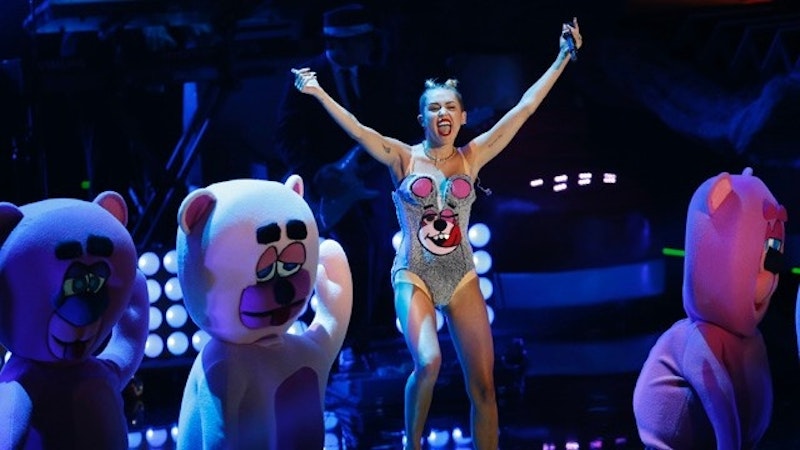Pop music has persevered through the years, undergoing multiple makeovers as it chases the next juggernaut radio hit. One topic in particular has bubbled up underneath the surface of the pop music scene in 2014: should white girls be allowed to appropriate black culture?
First came Miley Cyrus. Her music video for “We Can’t Stop” saw the former Hannah Montana star twerk with her “friends” at a house party. The media rage quickly followed suit. Vice’s article, “MILEY CYRUS NEEDS TO TAKE AN AFRICAN AMERICAN STUDIES CLASS,” by Wilbert L. Cooper, criticized Cyrus for her lack of awareness. In the article, Cooper interviewed Professor Akil Houston, who elaborated on why the “We Can’t Stop” video was problematic: “…ethnicity becomes like spice seasoning. It is used to liven up the dull dish that is mainstream/white culture.” Harsh? Probably. True? Absolutely.
When Sky Ferreria released her video for “I Blame Myself,” in which she’s seen as the white savior involved in a shisty drug deal, I wanted to blame anyone but her. I love Sky: I named my book after a song of hers. However, after watching the video over the course of months, the debate did not leave my mind. What was she thinking?
Shortly after Katy Perry released her video for “Dark Horse” accusations that Perry was racist for featuring a burning pendant with Allah inscribed on it starting pouring in. Then Avril Lavigne released the incredibly misguided “Hello Kitty.” Instead of taking the criticism that maybe what she did was, you know, not really cool, she took to twitter to proclaim: "RACIST??? LOLOLOL!!! I love Japanese culture and I spend half of my time in Japan."
It is easy to blame these white female pop stars for their missteps. They’re the public face of a much larger cognitive machine that coerces people to pay attention: at any cost. Pop stars want to discuss themselves; they want to be the center of attention no matter who they piss off. However, they (and the music industry) are doing it wrong. I asked a friend of mine about the “I Blame Myself” video and her reaction was a visceral, “She looks exactly like Madonna circa 1989 ‘Like A Prayer’ video.”
Where do we go from here when we are appropriating past, present, and racist subtexts and the originality seems to have run dry? A pop star like Miley Cyrus probably gets high and has a bunch of music executives tell her that she’s super hot, so of course it would make sense to her that it would be the proper career move.
Should we blame pop stars like Katy Perry, Sky Ferreria, and Miley Cyrus for not being self-aware enough to know that they’re depicting cultures in a way that is little more than a caricature? I believe so, but only to some extent. To exist in the public eye is to understand the public. It is to understand the ebb and flow of the very people who consume your image.
However, as consumers we must understand that these women are not calling the shots. They’re not sitting behind the camera lens; they’re positioned in front of it. They’re not in the editing room, or producing their own tracks. They’re the puppets of the media machine. Sure, we shouldn’t reward these pop stars for their bad behavior, but to place all the blame on them is obscuring a conversation that should be opened up to the music industry at large.
—Follow Shawn Binder on Twitter: @ShawnBinder

